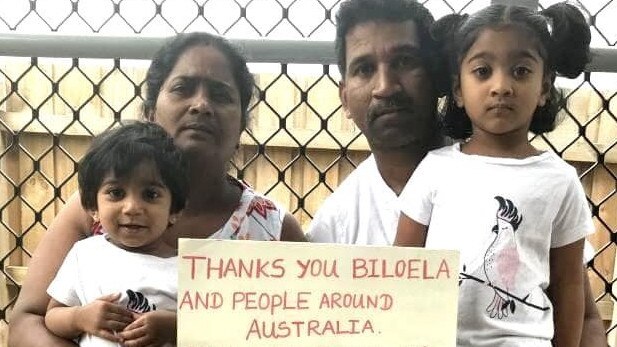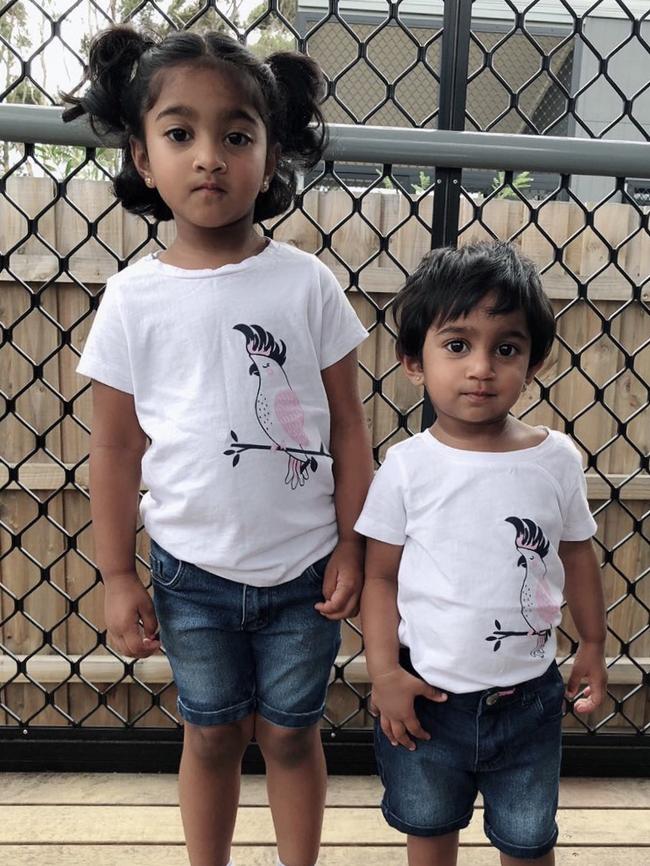
The adults separately came to Australia illegally in 2012 and 2013, claimed asylum, had those claims rejected and have exhausted every avenue of appeal.
In the meantime, they married, had two kids born in Australia, got jobs in a rural town and are loved by their community. Australia would be better off with this family, and they would be better off here.
Their supporters make much of the Christian case for exercising compassion to them: whatever you did not do for one of the least of these, you did not do for me.
Yet Scott Morrison forcefully, directly, powerfully made the moral as well as policy case for returning them to Sri Lanka.
MORE: Attack on PM’s faith splits Labor | Geoff Chambers — Has Labor learnt nothing? | Inquirer — No exceptions any more | Editorial — Are they refugees? No
Recalling the influx of asylum-seekers when Labor once before undid a tough border protection policy, the Prime Minister said: “I know what happens when people think it’s OK to make an exception here or there. I remember what happened. I remember the deaths. I remember those terrible images and I will never allow that to happen again.”
Morrison’s logical advocacy of his position, taking it head on and dealing with the most difficult questions, is one reason he is Prime Minister today.
He is recalling the 1200 or more people who drowned at sea when the chaos of no border control prevailed. Restoring control of the borders, as John Howard’s government did and then Tony Abbott’s did again, not only prevented deaths at sea, it restored confidence in the integrity of Australian processes and allowed Canberra to continue with a generous immigration program and a substantial orderly refugee intake.

But isn’t this a consequentialist attitude? This Sri Lankan family is real; real people that real Australians love. Immanuel Kant, by no means an orthodox Christian, argued that we must always treat human beings “never merely as a means to an end, but always at the same time as an end”.
Kristina Keneally, in making a case for the Sri Lankans, argued there was a “moral duty of time”.
Barnaby Joyce, like Alan Jones on a strange unity ticket with Keneally on this, argued more prosaically that the Sri Lankans were in a rural town doing jobs Australians didn’t want, were model community members and are already integrated, so show compassion and let them stay. I am completely torn on this issue and change my mind on it every five minutes. Keneally’s advocacy is sincere and powerful, but “the moral duty of time” is an extremely dangerous policy concept. It provides a huge incentive for people who don’t agree with the rules simply to pursue delay for its own sake.
One policy imperative out of all this should be never to have such delays again. There ought to be one primary decision-making process and one level of review. It doesn’t make sense that asylum claims end up in the High Court. While asylum-seekers want the delay, by allowing such a delay the system imposes a penalty on them if the ultimate answer is no. Then there is the incontrovertible fact the Australian-born children are completely innocent.
Yet it is also the case that even the most sympathetic listeners cannot agree to the proposition that they will be persecuted in Sri Lanka. Tamils are not persecuted in Sri Lanka. And if escaping persecution were their primary aim, then the giant Indian state of Tamil Nadu is right next door. Tamils are not persecuted in Sri Lanka and they are even more not persecuted in Tamil Nadu.
I don’t criticise them morally.
I, too, would rather live in Australia than in Sri Lanka or India. Here’s another heretical thought. If the family’s Australian advocates care about them as much as they say they do, care about them as individuals and not as part of a campaign to change Australian policy, then raising, say, $50,000 for them as a resettlement grant in Sri Lanka would make a huge difference to their life prospects there.
For all that, sometimes you can be grateful for the decisions you don’t have to make.




The case of Sri Lankan asylum applicants Nadesalingam Murugappan, his wife Kokilapathmapriya Nadarasa and their two children is the public policy dilemma from hell.